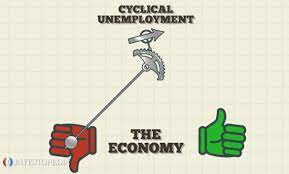A 401(k) plan is an employer-sponsored retirement account that allows employees to contribute a percentage of their salary before federal income taxes are deducted. Companies frequently match a percentage of an employee’s contribution and deposit it into a 401(k) account. If an employee withdraws money from a 401(k) account before the age of 59½, the IRS imposes a penalty. After the age of 59½, the IRS allows penalty-free withdrawals from retirement savings, known as eligible distributions. If you retire after the age of 59½, you can begin taking withdrawals without being penalized for doing so. If you don’t need your savings right now, you can leave them alone, but you won’t be able to contribute to them. In this article, we will review when can you withdraw from 401k both penalty-free and tax-free.
When Can You Withdraw From 401k?
Unexpected job loss, illness, or other catastrophes can devastate a family’s finances, so it’s reasonable that people may consider withdrawing from their 401(k). Take caution, as this decision may have long-term implications for your goals of a happy retirement. Withdrawing from your traditional 401(k) should be your last alternative, as any withdrawals made before the age of 59½, will be taxed as income by the IRS, plus a 10% early withdrawal penalty. This penalty was imposed to deter people from withdrawing funds from their retirement accounts too soon.
If you haven’t met the five-year limit mentioned above, you can withdraw funds from your Roth 401(k) before the age of 59½. Because your withdrawal must include both your personal contributions and earnings on those contributions, it must be prorated according to the percentage each represents in your portfolio. So, while any contributions you’ve made are tax-free when withdrawn, gains on those contributions are taxed as ordinary income and subject to a 10% tax penalty.
When a person can access their retirement savings without paying an early withdrawal penalty, the rules for 401(k)s vary. Younger participants have fewer possibilities for withdrawing funds from their 401(k)s than their older counterparts, who are either retired or nearing retirement age. The money in a 401(k) is meant to fund retirement, and the government has different procedures in place to discourage early withdrawals.
When Can You Withdraw From Your 401(k) Without Penalty?
It’s quite simple to contribute to a 401(k), but withdrawing funds can be difficult if you haven’t reached the age of 59½. If you’re short on cash or worried about the market, an early withdrawal from your retirement plan may seem enticing, but the implications may be more than you imagine. You may be able to withdraw from your 401(k) without incurring the 10% early distribution tax penalty under certain circumstances. To withdraw from 401k penalty free entails the following.
In general, the IRS will waive the early distribution tax penalty if the following conditions are met:
1. You select “substantially equal periodic” payments. In essence, you agree to withdraw a set number of equal payments (at least one each year) from your account. They begin when you quit working, last for life (yours or your beneficiary’s), and must normally remain constant for at least five years or until you reach the age of 59½ (whichever comes first). There are several rules that apply to this choice, so consult with a skilled financial counselor beforehand.
2. You resign from your employment. This only applies if it occurs in the year you turn 55 or later (50 if you work in federal law enforcement, federal firefighting, customs, border protection, or air traffic control).
3. In a divorce, you must divide a 401(k). If the court’s qualifying domestic relations order in your divorce compels you to cash out a 401(k) to split with your ex, the withdrawal may be penalty-free.
4. You become or are disabled.
5. After you died, payments were given to your beneficiary or estate.
6. During the year, you gave birth to or adopted a kid (up to $5,000 per account).
7. The funds were used to cover an IRS levy.
When Can You Withdraw From 401k Tax-Free?
Because you do not pay taxes on your contributions, your withdrawals in retirement will be taxed at your regular income rate. If you take money from your 401(k) before the age of 59½, you’ll have to pay taxes as well as a 10% penalty. (If you have a Roth 401(k), you will not have to pay taxes on your retirement withdrawals because the money you put in was previously taxed; however, you may still be assessed taxes and penalties if you remove your money before the age of 59½). Withdrawals from 401(k) plans are frequently subject to steep penalties and additional taxes. Consider the following regulations and choices before withdrawing.
As a result, some people may understandably wonder, “How can I avoid paying taxes on my 401(k) withdrawal?” The short answer is that there is no way to avoid paying the taxes you will inevitably owe. However, there are some unique circumstances in which you may be able to access your 401(k) funds with minimal tax consequences, even if only briefly.
Obtaining a 401(k) loan. If your workplace allows it, you may be allowed to borrow against your 401(k), and the amount borrowed will not be taxed. However, if you fail to repay the loan on time or default, you will be required to pay taxes and possible early-withdrawal penalties.
Taking a retirement distribution during a year in which your income (including the distribution) falls. Aside from those exceptions, if you expect to take regular 401(k) withdrawals in retirement, you’ll have to pay taxes. However, there are techniques to assist you manage your tax liability once you begin using your 401(k) savings.
How Do I Get Money Out of My 401k?
By the age of 59.5 (and in certain cases, the age of 55), you will be able to begin withdrawing funds from your 401(k) without paying a penalty tax. Simply contact your plan administrator or log into your online account and request a withdrawal.
Can I Take All My Money Out of My 401k When I Retire?
After retirement, you can withdraw all or a portion of your 401(k) account. Remember that withdrawals from traditional (pretax) 401(k) contributions are taxable income.
Can I Convert My 401k to Cash?
If you quit your job, you have the option of rolling your 401(k) plan to an IRA, cashing it out, keeping the plan as is, or consolidating it with a new 401(k). IRA accounts provide you with more investing alternatives, but you must determine whether you want a standard or Roth IRA based on when you want to pay taxes.
Can I Withdraw My 401k to My Bank Account?
You can transfer earnings from a 401(k) to your bank account without paying the 10% penalty once you reach the age of 59 ½. However, you must still pay income taxes on the amount withdrawn. If you have already retired, you can choose to receive monthly or periodic transfers to your bank account to assist with your living expenses.
Can I Borrow From My 401k to Buy a House?
Because it is your money, the quick answer is yes. While there are no restrictions on how you can use the cash in your account, removing funds from a 401(k) before the age of 59½ will result in a 10% early withdrawal penalty as well as taxes.
What Do I Do With My 401k When I Leave My Job?
When it comes to leaving a job, you have various options: Keep the account as it is. Pre-tax or after-tax, roll it over to your new employer’s 401(k). Outside of your new employer’s plan, roll it into a regular or Roth IRA.
What Qualifies to Withdraw From a 401(k)?
Qualification for a Hardship Withdrawal
- Certain medical costs.
- Expenses associated with purchasing a primary residence.
- Tuition and fees for up to 12 months.
- Expenses incurred to avoid foreclosure or eviction.
- Funeral or burial costs.
How Much Is in My 401k?
Log into your 401(k) plan’s website to find your 401(k) balance and see how your 401(k) is progressing. If you are unable to access your account online, contact your human resources department and ensure that your quarterly statements are being sent to the correct address.
How Much Do I Lose If I Withdraw My 401k?
If you take money out of your 401(k) account before the age of 59 1/2, you must pay a 10% early withdrawal penalty on top of the income tax on the distribution. A $5,000 early 401(k) withdrawal will cost $1,700 in taxes and penalties for someone in the 24% tax bracket.
Can You Use 401k Money for Anything?
The IRS states that you can withdraw cash from your 401(k) account without penalty only after reaching the age of 591/2, becoming permanently incapacitated, or otherwise being unable to work.
Can I Cash Out 100% of My 401k?
Yes. In retirement, you can withdraw only what you need to live on and leave the remainder invested.
Conclusion
In general, retirees with 401(k)s have three options: leave their money in the plan until they reach the required minimum distribution (RMD) age, convert the account into an individual retirement account (IRA), or begin cashing out through a lump-sum distribution, installment payments, or purchasing an annuity through a recommended insurer.
Recommended Articles
- How To Take Money Out of 401k Without Penalty ( Detailed Guide)
- TAXES ON 410K WITHDRAWAL: Everything You Should Know!!
- WHAT IS 401K: How It Works, Benefits & Withdrawal
- HOW TO CHECK 401K BALANCE: Simple Guide






